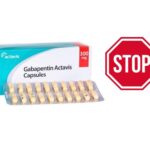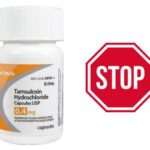How To Stop Taking Clozapine Safely

Medication compliance or adherence refers to the degree or extent of conformity to the recommendations about day-to-day treatment by the provider with respect to the timing, dosage, and frequency. It may be defined as the extent to which a patient acts in accordance with the prescribed interval, and dose of a dosing regimen.
Adherence to therapies is a primary determinant of treatment success. Failure to adhere to the prescribed regimen is a serious problem that not only affects the patient but also the health care system. Medication non-adherence in patients leads to substantial worsening of disease, death, and increased health care costs.
What is clozapine?
Clozapine is an antipsychotic medicine. It works by changing the actions of chemicals in the brain. Clozapine is used to treat schizophrenia after other treatments have failed.
Clozapine is also used to reduce the risk of suicidal behavior in people with schizophrenia or similar disorders. Clozapine is available only from a certified pharmacy under a special program.
How Clozapine works
Clozapine is in a class of medications called atypical antipsychotics. Clozapine works primarily by blocking receptors in the brain for several neurotransmitters (chemicals that nerves use to communicate with each other) including dopamine type 4 receptors, serotonin type 2 receptors, norepinephrine receptors, acetylcholine receptors, and histamine receptors.
The challenge with clozapine
Clozapine affects your immune system. You may get infections more easily, even serious or fatal infections. Call your doctor if you have a fever, sore throat, weakness, or lack of energy. Clozapine can increase your risk of seizure, especially at high doses. Avoid any activity that could be dangerous if you have a seizure or lose consciousness. Clozapine can cause serious heart problems. Call your doctor right away if you have chest pain, trouble breathing, fast or pounding heartbeats, or sudden dizziness. Clozapine is not approved for use in older adults with dementia-related psychosis.
How to stop taking clozapine safely
Although you may have heard the term “withdrawal,” the term “antipsychotic discontinuation syndrome” may be new to you. Antipsychotic discontinuation syndrome is a name for the collection of symptoms that may occur when someone suddenly stops an antipsychotic or drastically lowers their dose.
A person may stop taking their antipsychotic medication for various reasons, such as because the medication is (or is perceived to be) not effectively treating symptoms because it is causing unbearable side effects, or because the person does not think they should be taking the medication or do not agree with how they were instructed to take it.
Symptoms that may be experienced during antipsychotic discontinuation syndrome include:
• Vomiting, nausea, and/or diarrhea
• Difficulty sleeping, restlessness, anxiety, and/or agitation
• Dizziness
• Runny nose
• Problems with muscle movement including involuntary muscle contractions, inability to stay still, and/or uncontrollable movements
Antipsychotic discontinuation syndrome symptoms generally appear within the first few days after you stop the use or significantly reduce use. The symptoms tend to be the most severe around the one-week mark and subside after that.
The limited research that does exist suggests that up to 40% of the people who stop taking antipsychotics, including first- and second-generation, may experience antipsychotic discontinuation syndrome.
Discontinuation of clozapine has been shown to have more severe symptoms, including rebound psychosis, than discontinuation of other types of antipsychotics. Clozapine discontinuation is also associated with more rapid onset of symptoms.
When people who are prescribed antipsychotics like clozapine for psychotic disorders stop taking them, some relapse, meaning that their psychosis returns. However, some patients are able to sustain a psychosis-free existence after the cessation of antipsychotics. Several studies show that only 25%–55% of patients with schizophrenia who stopped taking antipsychotic medication experienced the relapse of symptoms in the first 6 to 10 months after they stopped taking them.
If you want to stop taking clozapine, you should discuss this with your doctor. Your doctor will discuss the negatives and benefits of stopping clozapine. You can ask them about these things. It’s important to think about the negatives and benefits of stopping clozapine.
If you decide to come off clozapine, your doctor will help you come off the medication gradually by reducing the dose over a period of time or switching you to an alternative medication.
If you stop clozapine suddenly, it can cause ‘rebound psychosis’. This means that the symptoms of your illness return suddenly, and you may become unwell again. This is also known as ‘relapse’.
If you or your family or friends think you are becoming unwell again, you should speak to your doctor.
You may find that stopping your medication can lead to your symptoms returning within 3-6 months. Your doctor may suggest that you keep taking the medication because it is keeping you well. If this is the case, you could ask about trying another type of medication.
If you want to stop taking clozapine, it is important to consider what happened during previous episodes of illness. The risk of the same symptoms occurring again needs to be weighed up against not having the side effects of the medication and any other things important to you. Your doctor can talk these things through with you to help you come to the best decision.





